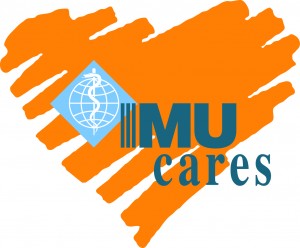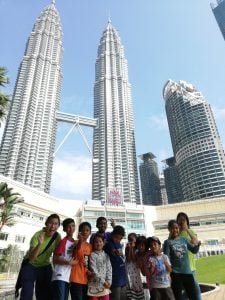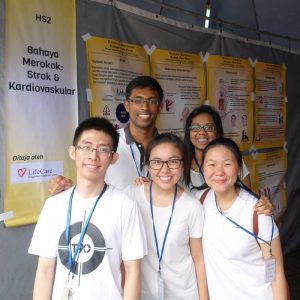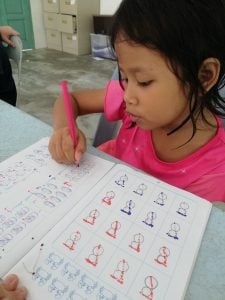[fusion_builder_container hundred_percent=”no” equal_height_columns=”no” menu_anchor=”” hide_on_mobile=”small-visibility,medium-visibility,large-visibility” class=”” id=”” background_color=”” background_image=”” background_position=”center center” background_repeat=”no-repeat” fade=”no” background_parallax=”none” parallax_speed=”0.3″ video_mp4=”” video_webm=”” video_ogv=”” video_url=”” video_aspect_ratio=”16:9″ video_loop=”yes” video_mute=”yes” overlay_color=”” overlay_opacity=”0.5″ video_preview_image=”” border_size=”” border_color=”” border_style=”solid” padding_top=”” padding_bottom=”” padding_left=”” padding_right=””][fusion_builder_row][fusion_builder_column type=”1_1″ layout=”1_1″ background_position=”left top” background_color=”” border_size=”” border_color=”” border_style=”solid” border_position=”all” spacing=”yes” background_image=”” background_repeat=”no-repeat” padding=”” margin_top=”0px” margin_bottom=”0px” class=”” id=”” animation_type=”” animation_speed=”0.3″ animation_direction=”left” hide_on_mobile=”small-visibility,medium-visibility,large-visibility” center_content=”no” last=”no” min_height=”” hover_type=”none” link=””][fusion_text] It all started 8 years ago when every once or twice a year Brenda Chin Huey Zien and her family started visiting a welfare centre (a home for the elderly and an orphanage) built by their church in her mum’s hometown. These visits became somewhat a family tradition and a favourite part of going back to this centre is deciding which food to bring or games to play. Then, in college, Brenda volunteered a few times a month at an elderly daycare centre in PJ. Her role was just to do simple things like helping them to clean the windows, doing the dishes and helping the residents blow-dry their hair. Brenda usually went there on days where she only had afternoon classes because the center was located close to the Asia Jaya LRT station – she would drop by in the morning to help out and after lunch, take the train to college.
Brenda explains on how she continued these voluntary activities while studying medicine at IMU. “In coming to IMU, there were various opportunities to get involved. In the first 2.5 years at the main campus in Bukit Jalil, I had the opportunity to be the university representative in the Asian Medical Students’ Association (AMSA) and my focus was on organising and/or leading community activities through AMSA-IMU. We were able to conduct free public health screening services, public health awareness campaigns, and through AMSA we also volunteered in the various public health activities organised by partnering organisations. These encounters were always reminders that there is much left to be done for our fellow humans, and those of us who are in the position to offer service should always serve.”  “Having moved to the Seremban Clinical Campus, the number of organisational activities took a shift – IMU Cares activities were abundant, and I gravitated towards the Kampung Sebir Education Project out of curiosity and love for children. The project was established in 2015 by our seniors who had identified a need for the children there to have guidance from people who believe that improving their education can improve their future. They took the first leap and began giving tuition classes every Saturday morning.When my cohort came to the clinical campus in 2017, a group of us joined them as volunteers because we shared in their conviction to give back to the community what we have received – education. I was given the opportunity to lead the project with my cohort mates and juniors for the remaining 1.5 years in Seremban, and our role was mainly to continue leading the weekly classes as well as come up with activities that would enrich the kids’ learning process. It took a lot of time, but it was always worth it.” Brenda elaborates, “The knowledge that I have enough of what I need and much of what I want – by no merit of my own, while others don’t have the same privileges – by no fault of their own. I believe that those of us with more have the responsibility to give back to those with less because we are all one single race – mankind – before we are anything else. I truly believe that a life lived in service of others is a life worth living.” [/fusion_text][fusion_imageframe image_id=”34075″ style_type=”none” stylecolor=”” hover_type=”none” bordersize=”15″ bordercolor=”#ffffff” borderradius=”” align=”none” lightbox=”no” gallery_id=”” lightbox_image=”” alt=”” link=”” linktarget=”_self” hide_on_mobile=”small-visibility,medium-visibility,large-visibility” class=”” id=”” animation_type=”” animation_direction=”left” animation_speed=”0.3″ animation_offset=””]https://www.imu.edu.my/media/2019/04/RRF-1.jpg[/fusion_imageframe][fusion_text] All these activities led to Brenda receiving the Aflame Student Award at IMU’s University Day celebrations on 8 March 2019 at the University’s campus in Bukit Jalil. The award, which was created in 2012 by IMU, highlights the importance of humane principles practices among students in IMU, and recipients are chosen for their contribution to society. As the winner, Brenda was awarded RM1,000 cash along with a certificate and the Aflame trophy. She was also given the opportunity to nominate a beneficiary to receive a donation of RM5,000. This year, the recipient of the donation was Refuge for the Refugees. Refuge For The Refugees (RFTR) is a non-profit organisation that seeks to raise awareness regarding the plight of refugees in Malaysia as well as provide education for refugee children. Now in its 7th year of running, RFTR has 35 refugee schools, 2 halfway homes and 1 social business school under her umbrella, all set up with the aim to ensure that refugees are given access to quality education and empowered with skills to sustain their families. Besides raising awareness and providing education and entrepreneurship skills for refugees, the team at RFTR also works on the ground to rescue refugees from detention camps and human trafficking rings. [/fusion_text][fusion_table]
“Having moved to the Seremban Clinical Campus, the number of organisational activities took a shift – IMU Cares activities were abundant, and I gravitated towards the Kampung Sebir Education Project out of curiosity and love for children. The project was established in 2015 by our seniors who had identified a need for the children there to have guidance from people who believe that improving their education can improve their future. They took the first leap and began giving tuition classes every Saturday morning.When my cohort came to the clinical campus in 2017, a group of us joined them as volunteers because we shared in their conviction to give back to the community what we have received – education. I was given the opportunity to lead the project with my cohort mates and juniors for the remaining 1.5 years in Seremban, and our role was mainly to continue leading the weekly classes as well as come up with activities that would enrich the kids’ learning process. It took a lot of time, but it was always worth it.” Brenda elaborates, “The knowledge that I have enough of what I need and much of what I want – by no merit of my own, while others don’t have the same privileges – by no fault of their own. I believe that those of us with more have the responsibility to give back to those with less because we are all one single race – mankind – before we are anything else. I truly believe that a life lived in service of others is a life worth living.” [/fusion_text][fusion_imageframe image_id=”34075″ style_type=”none” stylecolor=”” hover_type=”none” bordersize=”15″ bordercolor=”#ffffff” borderradius=”” align=”none” lightbox=”no” gallery_id=”” lightbox_image=”” alt=”” link=”” linktarget=”_self” hide_on_mobile=”small-visibility,medium-visibility,large-visibility” class=”” id=”” animation_type=”” animation_direction=”left” animation_speed=”0.3″ animation_offset=””]https://www.imu.edu.my/media/2019/04/RRF-1.jpg[/fusion_imageframe][fusion_text] All these activities led to Brenda receiving the Aflame Student Award at IMU’s University Day celebrations on 8 March 2019 at the University’s campus in Bukit Jalil. The award, which was created in 2012 by IMU, highlights the importance of humane principles practices among students in IMU, and recipients are chosen for their contribution to society. As the winner, Brenda was awarded RM1,000 cash along with a certificate and the Aflame trophy. She was also given the opportunity to nominate a beneficiary to receive a donation of RM5,000. This year, the recipient of the donation was Refuge for the Refugees. Refuge For The Refugees (RFTR) is a non-profit organisation that seeks to raise awareness regarding the plight of refugees in Malaysia as well as provide education for refugee children. Now in its 7th year of running, RFTR has 35 refugee schools, 2 halfway homes and 1 social business school under her umbrella, all set up with the aim to ensure that refugees are given access to quality education and empowered with skills to sustain their families. Besides raising awareness and providing education and entrepreneurship skills for refugees, the team at RFTR also works on the ground to rescue refugees from detention camps and human trafficking rings. [/fusion_text][fusion_table]
| Why did you choose this organisation? |
|---|
| At the time that we were asked to nominate potential beneficiaries, RFTR came to mind as I know Heidy, the founder of RFTR, and have followed her updates about RFTR and how the communities are doing since it was founded. She shares about their struggles and successes to maintain the public’s awareness. I got to know that RFTR was working on setting up their social business school to encourage self-sustainability amongst their people. That’s what RFTR has always aimed to do – to educate, empower and assist the people to be independent. I think this is very meaningful work – sowing into people’s lives and allowing them to continue to have the ability to bear fruit. The way their work has expanded over the years is extremely encouraging and they have brought hope to a whole community. Since they still needed funding for the final touches of their social business school, the timing was perfect. |
| How did you feel when you were informed that you are the winner of the award? |
| Humbled. Extremely humbled because I knew that the other finalists (Julius, Navid, Farah, and Melissa) have all been serving in various different capacities that are equally impactful, and there is so much that we can all learn from each other. |
| How you find time for this – dividing your time between this and studies? |
| Specifically for my main involvement in the past two years, the kids simply mattered enough. I would be lying if I said it was always easy to be present – we are students, after all. We had a good rotational system going and my teammates were fantastic, so we didn’t actually all have to be there at the same time, but when you get to know a community the way we did, it’s hard to keep yourself away. You find yourself there even when it isn’t your “turn” because there is always something you can contribute, and you eventually have to figure out how to prioritise at a particular season. I think – especially because we are still students, we still have that luxury to make time if we are intentional about it. This is something to be thankful for and something to use to the fullest. |
| What are your future plans in continuing your involvement in the community? |
| I think it is not to be taken lightly – that we committed to live our lives in service of others. I pray I will always do so sincerely. At the moment, while I’m still a student and in the time that I will spend waiting for a job, I plan to continue to find places to volunteer at and look into ways to further equip myself. For the later future, I have been thinking of going into family medicine because primary care is a specialty that puts us in the position to meet the commonest healthcare needs of our society, to see them before anything worse happens, and it is broad-spectrum enough to be taken out into fields that have less access to healthcare. However, I believe that there will always be relevant community needs to be met in every field that we venture into, and the important thing is to always keep our eyes open and our hearts ready to see and respond to those needs. |
[/fusion_table][fusion_imageframe image_id=”34084″ style_type=”none” stylecolor=”” hover_type=”none” bordersize=”15″ bordercolor=”#ffffff” borderradius=”” align=”none” lightbox=”no” gallery_id=”” lightbox_image=”” alt=”” link=”” linktarget=”_self” hide_on_mobile=”small-visibility,medium-visibility,large-visibility” class=”” id=”” animation_type=”” animation_direction=”left” animation_speed=”0.3″ animation_offset=””]https://www.imu.edu.my/media/2019/04/946633_731961356872835_305736294585911546_n.jpg[/fusion_imageframe][fusion_text] Brenda elaborates further on this. “I’m sure it will not be easy, especially during the earlier years while getting used to new responsibilities, but I have great examples to follow. I have seen my seniors who simply make time and find ways to be involved in community work from wherever they are at in life, and I have seen our consultants in IMU who make it a point to continue serving the community because their expertise is useful. They are living examples that it is possible, even in all the busyness, and I will do my best to follow after that example. We chose to commit ourselves to a lifetime of service, and I believe we must be faithful to carry it out not only at our formal workplace but in our daily lives.”  “Many of us entered IMU with big dreams and a lot of idealism – mostly good dreams, I am sure, but perhaps a little too much idealism? I know I was one of the many. These four years in IMU, the ideals I once declared have been challenged numerous times. I know there is much left to learn, but I think I have come to understand something slightly better; I have come to see that life and medicine are not about lofty ideals. Rather, they are about the harsh reality of the brokenness of the world in so many aspects, and the honest fact that we are not such great beings to be able to mend the world by getting a degree. The plain truth is that we may not even change anything very noticeable in our lifetimes despite the best of intentions and efforts.” “Yet at the same time, I think I have come to see that life and medicine are also about the comforting truth that just as much as we cannot, perhaps we do not need to fix the entire world. We do not need to change things that are largely noticeable. I believe we do, however, need to actively play our part to seek to change as many ‘individual worlds’ as we can; to be as kind and intentional as we can, to do as much good as we can, to be as competent as one can be – because life and medicine are also about the hopeful truth that little impacts matter as much as the big.”
“Many of us entered IMU with big dreams and a lot of idealism – mostly good dreams, I am sure, but perhaps a little too much idealism? I know I was one of the many. These four years in IMU, the ideals I once declared have been challenged numerous times. I know there is much left to learn, but I think I have come to understand something slightly better; I have come to see that life and medicine are not about lofty ideals. Rather, they are about the harsh reality of the brokenness of the world in so many aspects, and the honest fact that we are not such great beings to be able to mend the world by getting a degree. The plain truth is that we may not even change anything very noticeable in our lifetimes despite the best of intentions and efforts.” “Yet at the same time, I think I have come to see that life and medicine are also about the comforting truth that just as much as we cannot, perhaps we do not need to fix the entire world. We do not need to change things that are largely noticeable. I believe we do, however, need to actively play our part to seek to change as many ‘individual worlds’ as we can; to be as kind and intentional as we can, to do as much good as we can, to be as competent as one can be – because life and medicine are also about the hopeful truth that little impacts matter as much as the big.”  “My parents used to remind me when I was growing up that my occupation was to be a student. That meant that my job was to study. Similarly, might I suggest that our occupation here on earth is to be human? Might I also suggest that this means our job is to be humane? By that definition, our duty is to have or show compassion to others – to each other; to have more than just our own interests in mind in all that we do. Perhaps we cannot always extend an active hand in all circumstances, but maybe it makes a difference just not to turn a blind eye to the trouble that we see; not to run away when we see others in need. For some of us, maybe it just means ensuring that the quality of our work will never compromise the safety or comfort of another – because we care about each other, purely on a human-to-human level.” “Each community I have had the privilege of meeting has showed me that to whom much is given, much is required. All of these encounters, from daily encounters with patients in the hospital to the weekly classes we gave in Seremban to the Orang Asli kids, they remind me that I must serve because, by no merit of my own, I have the privilege of health and education that many, by no fault of their own, simply do not have. It is humbling to realize that as we progress in our studies and careers, we will inevitably be given more, and much more will be required of us. I once heard a song that says, “We cannot do all the good that the world needs, but the world needs all the good that we can do” and a phrase I like very much that says “The good that you do will be forgotten tomorrow. Do good anyway”.
“My parents used to remind me when I was growing up that my occupation was to be a student. That meant that my job was to study. Similarly, might I suggest that our occupation here on earth is to be human? Might I also suggest that this means our job is to be humane? By that definition, our duty is to have or show compassion to others – to each other; to have more than just our own interests in mind in all that we do. Perhaps we cannot always extend an active hand in all circumstances, but maybe it makes a difference just not to turn a blind eye to the trouble that we see; not to run away when we see others in need. For some of us, maybe it just means ensuring that the quality of our work will never compromise the safety or comfort of another – because we care about each other, purely on a human-to-human level.” “Each community I have had the privilege of meeting has showed me that to whom much is given, much is required. All of these encounters, from daily encounters with patients in the hospital to the weekly classes we gave in Seremban to the Orang Asli kids, they remind me that I must serve because, by no merit of my own, I have the privilege of health and education that many, by no fault of their own, simply do not have. It is humbling to realize that as we progress in our studies and careers, we will inevitably be given more, and much more will be required of us. I once heard a song that says, “We cannot do all the good that the world needs, but the world needs all the good that we can do” and a phrase I like very much that says “The good that you do will be forgotten tomorrow. Do good anyway”.
“I hope we always remember that. Together, as humans first, to
always do that good faithfully, in humility and teachability, because especially in choosing this career field that we have – in healthcare and education, we are the ones who committed to live our lives in service of others.”
Congratulations Brenda and Keep Up the Good Work!
[/fusion_text][/fusion_builder_column][/fusion_builder_row][/fusion_builder_container][fusion_builder_container hundred_percent=”no” equal_height_columns=”no” menu_anchor=”” hide_on_mobile=”small-visibility,medium-visibility,large-visibility” class=”” id=”” background_color=”” background_image=”” background_position=”center center” background_repeat=”no-repeat” fade=”no” background_parallax=”none” parallax_speed=”0.3″ video_mp4=”” video_webm=”” video_ogv=”” video_url=”” video_aspect_ratio=”16:9″ video_loop=”yes” video_mute=”yes” overlay_color=”” overlay_opacity=”0.5″ video_preview_image=”” border_size=”” border_color=”” border_style=”solid” padding_top=”” padding_bottom=”” padding_left=”” padding_right=””][fusion_builder_row][fusion_builder_column type=”1_1″ layout=”1_1″ background_position=”left top” background_color=”” border_size=”” border_color=”” border_style=”solid” border_position=”all” spacing=”yes” background_image=”” background_repeat=”no-repeat” padding=”” margin_top=”0px” margin_bottom=”0px” class=”” id=”” animation_type=”” animation_speed=”0.3″ animation_direction=”left” hide_on_mobile=”small-visibility,medium-visibility,large-visibility” center_content=”no” last=”no” min_height=”” hover_type=”none” link=””][fusion_text]
[/fusion_text][/fusion_builder_column][/fusion_builder_row][/fusion_builder_container]



No approved comments.